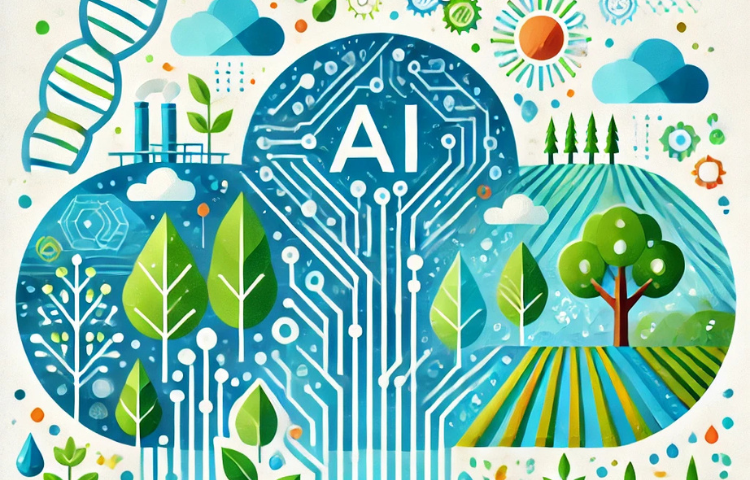

Prefer to listen instead? Here’s the podcast version of this article.
The intersection of artificial intelligence (AI) with science and sustainability is unlocking groundbreaking solutions to some of the world’s most pressing challenges. From accelerating scientific research to mitigating climate change and transforming agriculture, AI’s role in driving sustainable innovation is growing exponentially. This post explores key developments across these domains, providing a detailed look at how AI is redefining what’s possible.
Scientific research is often a slow, costly process, requiring years to bring breakthroughs to fruition. AI technologies like deep learning are compressing these timelines by streamlining research in fields like chemistry, biology, and materials science. One example is Google’s GNoME model, which uses graph neural networks to predict the stability of new materials. This AI model has discovered 380,000 novel stable crystals, advancing materials science by what would have otherwise taken centuries [Coursera] [N-iX]
Similarly, AI-driven platforms are transforming drug discovery. Traditional pharmaceutical R&D can take 12-15 years and billions of dollars, with most candidates failing clinical trials. With AI-powered tools, companies can now conduct faster simulations, identify promising compounds, and accelerate preclinical testing, reducing time and costs by up to 50%
These breakthroughs have vast implications—not just for science, but for industries such as healthcare, where quicker drug development can translate into more effective therapies for patients.
AI is playing a pivotal role in transforming agriculture by improving efficiency and promoting sustainable practices. Chatbots and AI-powered diagnostics help farmers identify crop diseases and pests more accurately, saving time and reducing crop losses. AI systems are also being deployed to optimize irrigation and fertilizer usage, ensuring sustainable water consumption and reducing chemical run-off into the environment
In addition, AI tools for weather forecasting and carbon measurement are helping governments and companies combat climate change. Advanced models can predict extreme weather events with higher precision, enabling farmers and city planners to prepare for challenges like droughts and floods. These efforts not only support food security but also reduce environmental impact by improving resource management
Key Impact:
By making farming smarter and more sustainable, AI is helping society address challenges such as climate resilience and food security, two critical components of global sustainability efforts.
AI is also being integrated into large-scale sustainability projects, from reforestation initiatives to energy optimization. AI-driven platforms can monitor deforestation patterns in real-time, alerting conservationists to illegal logging activities. Similarly, companies are using AI to track and reduce carbon emissions, optimizing energy consumption and making manufacturing processes more eco-friendly.
For instance, predictive AI models now help forecast energy demand and optimize grid operations, supporting the integration of renewable energy sources like solar and wind. These technologies ensure that electricity networks remain stable, even as the world shifts towards greener energy [Source]
As these AI-driven innovations evolve, collaboration between tech companies, governments, and scientific communities will be essential to harness the full potential of these solutions. Key players such as Microsoft and Google are already working on AI-powered platforms for sustainable farming and scientific research
However, these advances must be accompanied by responsible regulation to ensure that AI applications align with ethical guidelines and environmental goals.
The future of science and sustainability lies in AI’s ability to accelerate research, improve resource management, and promote environmentally friendly practices. As AI continues to mature, its integration into these domains will not only drive innovation but also help solve critical global challenges like climate change, food security, and healthcare shortages. To stay informed about how these trends evolve, check out Quantilus’ blog for more insights into the latest developments in AI and technology.
By embracing AI solutions, industries and governments can work together to create a more sustainable and prosperous future for generations to come. As we look ahead, it’s clear that AI is more than just a buzzword—it’s a powerful tool shaping the future of science and sustainability.
WEBINAR